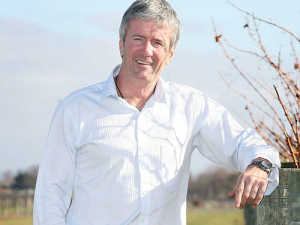The farming sector has its head in the sand if it doesn’t realise water is a huge issue waiting to be tackled, says Labour’s primary industries spokesperson Damien O’Connor.
If agricultural organisations like HortNZ or IrrigationNZ “are smart they will show leadership on this issue; if they are dumb, they won’t”, he told Dairy News.
“This simply [requires] a user-pays regime where we need to spend money to clean up waterways, to better monitor what is happening with our water management systems and waterways and for more research.”
O’Connor says user-pays, as a principle, has long been acceptable to the electorate -- including farmers -- but the water issue has been largely ignored for a long time.
“All you have to do is refer to John Luxton’s (former DairyNZ chairman) opinion that for the dairy industry in particular the social licence to operate is quickly evaporating. The industry needs to get ahead of a number of issues.
“A royalty on water would effectively provide funding for storage where it is viable, and for irrigation, better monitoring, research and development and better monitoring of regulations and standards.
“If we don’t do this properly our customers will be rejecting our product. We have to produce the finest, most ethically and sustainably produced products in the world and get a premium for them otherwise our future is not too bright.
“We have traded well on our reputation but there is a lot of pressure coming on and we have to position ourselves at the premium end of the market in everything we produce otherwise the viability of our agricultural system will be at risk.”
A royalty would be applied to all commercial use of water except that coming via reticulated supply. However urban and industrial clean-up of waterways are “just as necessary and need to be proceeded with”.
Urban people would also pay for water clean-ups of sewage and stormwater systems but through a different mechanism, he says.
In rural areas charges wouldn’t be made for stock water but further details “have to be worked through”.
That’s why Labour plans a round-table discussion if elected “because in different parts of New Zealand there are different degrees of reliance on water and different impacts on waterways, as pointed out by Federated Farmers”.
O’Connor says Labour, in Opposition, has not had the resources required to analyse the details sufficiently and properly. They are having to wait pending the resources of Government to establish the finer details of any proposal.
He says if Labour was forced into the detail now it may not be accurate and fair. “We want to be accurate and fair so that what we implement is workable and people can see it is logical. It is important that we be honest.”
He says the National Government was not upfront about increasing GST and that arguably had a greater effect on the farming sector than Labour’s water proposals.
O’Connor says he was a sharemilker when Labour made a hard call in the 1980s to remove farming subsidies that were encouraging uneconomic production and driving up land values.
“Thirty years on some hard calls are again needed. Water is one of the world’s most vital and valuable assets. We have taken it for granted but now realise we have to value and protect it.
“Most of the science, management and restoration of water quality has been paid for by taxpayers and ratepayers but this can’t continue.
“Money is needed for water storage and supply projects, it’s needed for better science and monitoring of waterways and its needed for management of water access rights by regional councils.
“In a relatively efficient economy of user-pays principles it is logical that access to a publicly owned asset should generate a royalty to cover these costs. It happens with oil, it happens with gold and coal and it happens with gravel.”











